One thing’s for sure: the Middle East is bursting at the seams with talented chefs who are making their culinary mark. We turned up the heat and spoke to some of the brightest stars in the kitchen to learn more about their experiences at home and abroad.
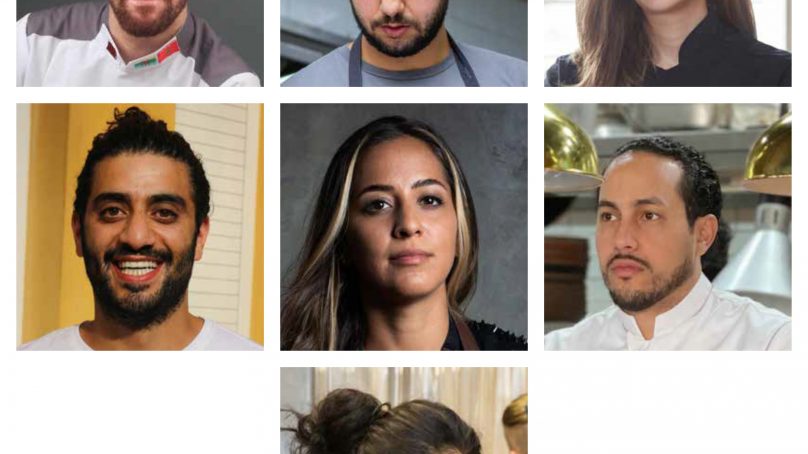
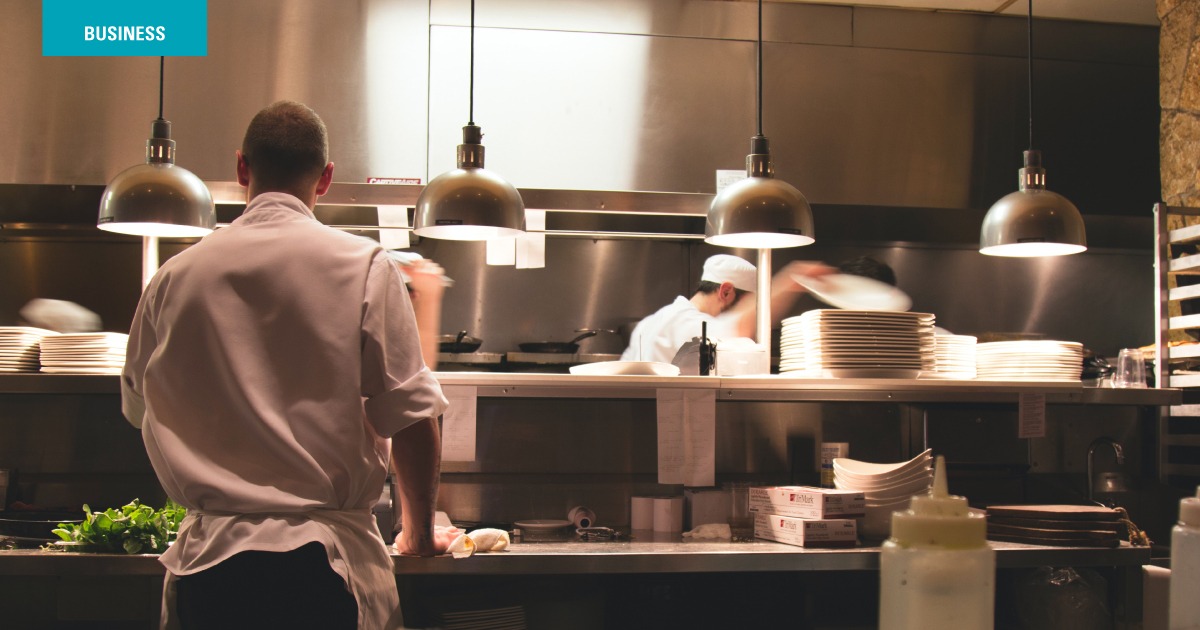
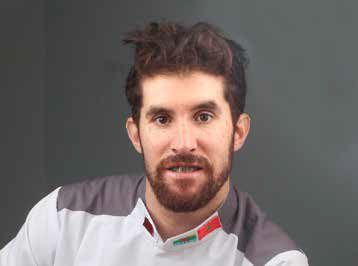
ADNAN ABARKACH
Executive chef
Luscious Catering
Moroccan
How would you describe yourself?
I’m an energetic and methodical executive chef who is always eager to lead. I constantly seek to maximize customers’ satisfaction wherever I am.
What’s your motto?
It’s OK to play with your food.
Which event has had the greatest impact on your career?
When I was a child, I used to cook with my mother. It was then that I noticed how food brings family together. I loved this feeling, and I decided to create moments to unite people to share a delicious meal.
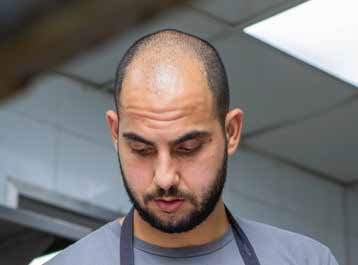
TAREK ALAMEDDINE
Culinary director
Baky Hospitality
Lebanese
How would you describe yourself?
The richness and variety of Levantine cuisine fueled my passion for cooking. I enrolled at Les Roches, receiving a degree with merit and, upon graduation, I interned at D.O.M. The idea of using authentic, local flavors to create a contemporary gastronomic experience was captivating.
After finishing the internship, I joined Noma’s team, where I worked as a sous-chef. There, I focused on doing research on old Levantine techniques and ingredients that could be introduced to the dishes we serve.
What’s your motto?
Nothing inspires innovation as much as nature, so immerse yourself in nature, get inspired by local produce and just cook.
Which event has had the greatest impact on your career?
Dine Beyond War was a pop-up dinner we organized at a school in Lebanon in September 2019. It was a memorable and emotional event. Also, being able to cook in the village where I grew up, using the ingredients my grandmother and mother used to forage when we were kids, really sparked my imagination.
What does it take to be a successful executive chef?
It takes dedication, dedication and more dedication. In addition to hard work and commitment, chefs must always be aware of their surroundings and what products are available locally. It is important to visit farms, learn old techniques and how to forage.
How are you influencing the industry and making your mark?
I am making my mark by sourcing local produce, visiting farmers, understanding seasonality and ingredients, and learning the science behind the techniques used by our ancestors then applying them mindfully in the dishes I prepare. The sublimation of Levantine gastronomy — rediscovering the essence of these remarkable recipes and adding my signature — provides a clear sense of purpose.
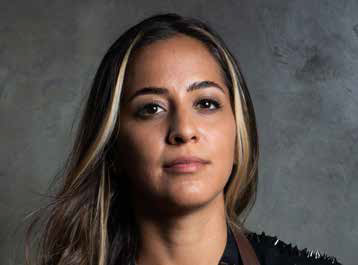
TALA BASHMI
Head chef/Patron Fusions by Tala at The Gulf Hotel
Bahraini
How would you describe yourself?
Educated in Switzerland, I am the first Arab chef to own an eponymous restaurant at a five-star hotel. I participated in season four of Top Chef Middle East and was ranked among the top three contestants. My aim is to leave a footprint in the culinary world by putting Bahrain on the map.
What’s your motto?
No one is you, and that is your power.
Which event has had the greatest impact on your career?
More than an event, there was a period that stands out. I was thrown in at the deep end when I was in the kitchen of a restaurant in Switzerland. I had to learn a new language, work under the guidance of an extremely demanding chef and adapt to a high-pressure environment. That was the moment that I realized what it actually takes to succeed and how much I was willing to endure to make it in this industry.
What does it take to be a successful executive chef?
Well, there’s much more to it than delicious food and good knife skills. Patience, flexibility, creativity, drive, the ability to inspire others and understanding numbers are fundamental.
How are you influencing the industry and making your mark?
What I’m trying to do is reshape the palates of people in my community and region. I create experiences for my guests while being inspired by traditional Bahraini and Middle Eastern dishes and reinventing them.
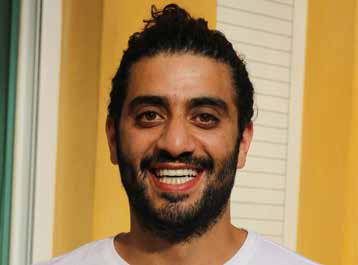
AZIZ DASHTI
Chef
Kuwaiti
How would you describe yourself?
After graduating from Le Cordon Bleu, I worked at Sheraton Kuwait and then traveled to Spain to join Asador Etxebarri, which is ranked among the 50 best restaurants in the world. Furthermore, I’ve produced a documentary about local street food culture in Kuwait.
What’s your motto?
If you love what you do then nothing can stop you. But if you can’t handle the stress, don’t do it.
Which event has had the greatest impact on your career?
Deciding to drop everything and focus on studying food.
What does it take to be a successful executive chef?
Dedication, hard work and being passionate about what you do.
How are you influencing the industry and making your mark?
I work with local farms and fishermen to showcase local products. Although we live in the desert, we have seasons. My goal is to create a fine-dining experience using local ingredients. I want to open my own restaurant and highlight Kuwaiti ingredients.
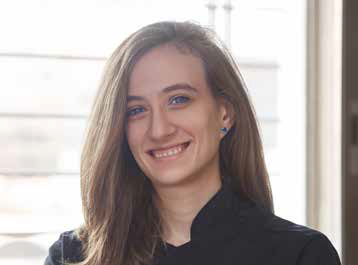
SEREEN SAMIR KURDI
Founder and executive chef
The Local Table
Jordanian
How would you describe yourself?
I kicked off my culinary journey at Les Roches in Jordan and obtained my diploma in culinary arts with distinction. I then completed a bachelor’s degree in Culinary Arts Summa Cum Laude at Kendall College and worked in the events department at the college. Following on from there, my journey took me to Aquavit, a two-Michelin star restaurant in New York. After my experience in the U.S., I moved back to Jordan and taught at Les Roches. It was then that I started The Local Table as a way of highlighting local products and producers, and to create a unique fine dining experience. In parallel, I accepted an offer to join Her Majesty Queen Noor Al Hussein as her head chef for two years. Most recently, I became the managing partner of an F&B company in Amman while taking on consultation projects around. Jordan for outlets across the country.
What’s your motto?
“Be who you are and say what you feel.” Dr. Seuss.
Which event has had the greatest impact on your career?
There were actually three events: the moment I was interviewed and accepted into Les Roches in Jordan, getting the job at Aquavit and starting The Local Table.
What does it take to be a successful executive chef?
You need to be creative, driven, empathetic, hard working and be able to learn.
How are you influencing the industry and making your mark?
I am making my mark by seeing the reactions of diners when they attend the pop-up dinners we organize. Being able to highlight locations, local produce, producers and native ingredients is amazing. We were the first to deliver pop-ups in Jordan and to fully source local and organic produce and ingredients, which set a precedent for these types of events in the country.
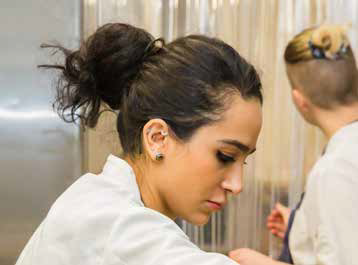
LAILA S. NAJM
Chef
Palestinian-Jordanian
How would you describe yourself?
Classically trained in the culinary arts, I weave elements of Middle Eastern cuisine with consideration to the authentic nuances of my own Palestinian-Jordanian heritage. By utilizing my hybridity of being an immigrant, my work displays a thoughtful appreciation for history, culture, literature and art. To me, cooking and food writing are powerful tools to highlight the intersection of flavors with artistic expressions through various cuisines across the globe.
What’s your motto?
Exploring culture and history through food and fermentation.
Which event has had the greatest impact on your career?
During my first pop-up event, Mirage, I realized that I was able to celebrate my heritage and prove that food can be presented in whatever way I choose to express it. I also understood that despite the prejudice faced as an immigrant woman of color, I was still able to forge an indescribable love for what I do and make it my own.
What does it take to be a successful executive chef?
It takes humility, resilience and an open heart. Chefs have to remember that we’re always learning and making mistakes is part of the process. We should remain focused, keep pushing and be open to inspiration that helps us create a path in the food industry that works for us.
How are you influencing the industry and making your mark?
The main goal of what I do is to help elevate Levantine cuisine on the culinary map. Middle Eastern cuisine is so special to me, and I want to keep celebrating it throughout my work. My wish is to further the exposure of Arabic cuisine while highlighting the rich history and culture behind it. I believe that by doing this, I am setting an example for other chefs of color, particularly women, to establish themselves in the culinary industry and embrace their unique heritage.
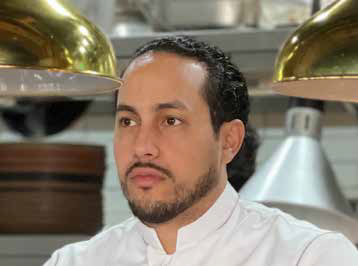
MOHAMMED INANI
Executive chef and partner
Chifty
Saudi-American
How would you describe yourself?
I have studied engineering but decided to pursue my real passion — cooking. I started working in kitchens in the U.S. in 2012, climbing the ladder until I became a sous chef at the three-Michelin star Saison in San Francisco. I’ve worked at top restaurants like Nobu, Morimoto and three-Michelin Atelier Crenn. After leaving Saison, I started doing pop-up dinners in the San Francisco Bay Area. At the end of 2018, more than 50 pop-ups later, I moved to Saudi Arabia and started teaching culinary classes. I then got involved in the Chifty project, which is what I’m currently working on.
What’s your motto?
Hard work and discipline matter most.
Which event has had the greatest impact on your career?
It was probably when I was promoted to a sous chef at Saison after only six months at the restaurant and earning the trust of world-renowned chefs.
What does it take to be a successful executive chef?
Being a successful executive chef comes from years of hard work, discipline and patience.
How are you influencing the industry and making your mark?
I have taught many culinary courses since I’ve been back in Saudi Arabia and helped many people achieve their goals. I also started Chifty restaurant and lounge to get a sense of how people view food here. It’s only the beginning, and we will do more things in the near future to improve the industry in KSA.











